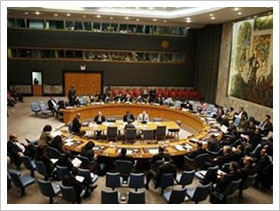Six party talks with Iran set to get under way
 Geneva - The five permanent United Nations Security Council members plus Germany were set to meet Thursday morning with Iran's nuclear negotiator for much-anticipated talks - but with diplomats signalling low expectations.
Geneva - The five permanent United Nations Security Council members plus Germany were set to meet Thursday morning with Iran's nuclear negotiator for much-anticipated talks - but with diplomats signalling low expectations.
"It's important to remember that the 'five plus one' group was formed to focus on the nuclear issue, and that remains our focus and our paramount concern," a United States official said ahead of the talks.
Besides Washington, Britain, France, Russia and China are the five nuclear powers and each sent representatives to Geneva for the talks.
Javier Solana, the European Union foreign policy chief, was to engage directly with Saeed Jalili, the Iranian negotiator, on behalf of the six parties.
If the morning meet goes well, a plenary session and informal one-on-one meetings could take place in the afternoon, officials have said.
Iran, though, while insisting its nuclear programme is peaceful, has not yet agreed to Western demands for unfettered access to its nuclear sites and more transparency. Tehran says it is willing to discuss general issues, like non-proliferation, reform of the UN or peace, but is less inclined to negotiate its own programme.
For the Iranians, it is the West that must change its attitude and not the other way around.
A small hint at a thaw though, however tiny, was seen in Washington late Wednesday, when the Iranian foreign minister visited his country's interest section at the Pakistan embassy. No Iranian senior official had been there since the Clinton administration.
The West was set to offer a "freeze for freeze," that if Iran stopped programmes that could allow for the creation of weapons, sanctions and other moves against the Islamic republic could be put on hold or reversed.
"If they don't want to talk nuclear, there is no use for these talks," said Mark Fitzpatrick, a scholar at the London security think tank IISS and a former high-ranking US State Department official.
The talks take place as both the United States and its ally Israel, which is also reported to have nuclear weapons, have refused to remove the chance of military action from the table, insisting all options remained open.
There were some indications, as the countdown to the negotiations ticked away, that Iran might be willing to back off some of its tougher demands, such as when President Mahmoud Ahmadinejad said he would be willing to buy enriched uranium.
The West has offered supplies in order to see Tehran back off its enrichment programme, but the three powers want specific commitments from Iran.
A positive sign, diplomats say, would be if the negotiations extended into a second day, indicating the sides were talking with each other, instead of at each other. (dpa)